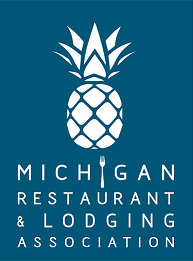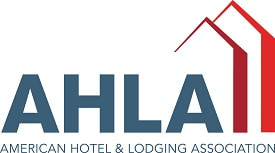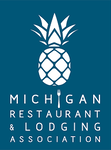Disinfecting Your Business During the Pandemic or Offering Disinfection Services?
MDARD's Pesticide Section weighs in with some considerations
By: Molly Mott, Pesticide Enforcement Specialist, Michigan Department of Agriculture and Rural Development, Pesticide and Plant Pest Management Division
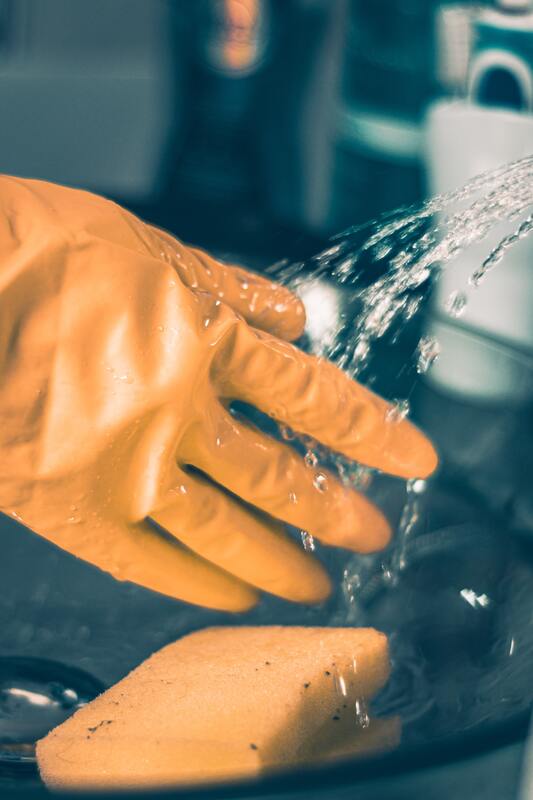
I usually write about state laws and regulations pertaining to pesticide use and operating requirements, recordkeeping, licensing, or frequently observed violations. This year, as we all know, has been different. The Michigan Department of Agriculture and Rural Development (MDARD) has spent an incredible amount of time shifting gears to join the fight against SARS-CoV-2, the novel coronavirus that causes COVID-19. In the Pesticide and Plant Pest Management Division, we adjusted inspections to allow for less in-person contact, shifted project priorities, distributed masks and gloves, created hand sanitizer in our lab, delivered it to staff, moved to virtual meetings, developed new private and registered applicator exam options, and more.
In addition to changing our internal procedures, we also provided outreach and education about disinfectants. It surprises many people to discover that disinfectants are in fact pesticides, because pesticides are defined by both state and federal law as substances that prevent, destroy, repel, or mitigate pests. Because sanitizers and disinfectants claim they kill viruses, bacteria, fungi, and other microorganisms, they are pesticides, and MDARD plays a role in regulating their use. Throughout the remainder of this discussion, I will use the term “disinfectant”, but the information applies to sanitizers, disinfectants, antimicrobials, disinfecting surface wipes, bleach with disinfecting claims, etc. All should have a United States Environmental Protection Agency (EPA) registration number (“EPA Reg. No.”) on the product label.
Are you disinfecting your business?
Many businesses have turned to surface disinfection as a tool to help ensure a safe working environment. First and foremost, ensure you have chosen a disinfectant that the EPA identifies as suitable for use against SARS-CoV-2. Since many disinfectants will not have updated labels that specifically state that they can be used against SARS-CoV-2, approved products can be found on EPA’s “List N” available on the EPA website.
In addition to changing our internal procedures, we also provided outreach and education about disinfectants. It surprises many people to discover that disinfectants are in fact pesticides, because pesticides are defined by both state and federal law as substances that prevent, destroy, repel, or mitigate pests. Because sanitizers and disinfectants claim they kill viruses, bacteria, fungi, and other microorganisms, they are pesticides, and MDARD plays a role in regulating their use. Throughout the remainder of this discussion, I will use the term “disinfectant”, but the information applies to sanitizers, disinfectants, antimicrobials, disinfecting surface wipes, bleach with disinfecting claims, etc. All should have a United States Environmental Protection Agency (EPA) registration number (“EPA Reg. No.”) on the product label.
Are you disinfecting your business?
Many businesses have turned to surface disinfection as a tool to help ensure a safe working environment. First and foremost, ensure you have chosen a disinfectant that the EPA identifies as suitable for use against SARS-CoV-2. Since many disinfectants will not have updated labels that specifically state that they can be used against SARS-CoV-2, approved products can be found on EPA’s “List N” available on the EPA website.
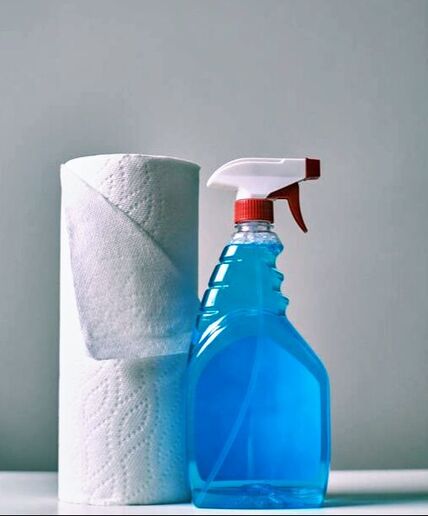
You have probably heard the phrase the label is the law for pesticide use. The same holds true for disinfectants. Read and follow the instructions, and confirm the surface you treat is listed on the product label. For example, if you treat bathroom fixtures at your business, ensure the product label has directions for disinfecting hard, non-porous surfaces. Application site should also be listed on the label – particularly if you are disinfecting around food preparation areas.
Are you offering disinfection services to your customers?
If your business offers disinfection services for hire, you may need a Pesticide Application Business License (PABL) issued by MDARD:
If your business does need a PABL, then your applicators will need certification in category 5B, Antimicrobial Pest Management. Being a licensed business further means that you must follow the pesticide use requirements found in the Natural Resources and Environmental Protection Act (Act 451 of 1994, Part 83, Pesticide Control), Regulation 636, and Regulation 637 – requirements such as recordkeeping, providing specific information to your customer, vehicle identification, drift management, and more. Contact your local inspector for more information.
Shady disinfectants!
When you choose which disinfectants to use, keep EPA’s List N in mind. Choosing a misleading, untested, or unregistered disinfectant could result in a false sense of protection or worse, such as inhalation or contact exposure issues. If you see any of the following for sale, contact your local inspector:
Get more information by visiting www.michigan.gov/mdardpest or call us at 800-292-3939 to get connected with your local PPPM inspector. Stay safe and stay sanitized!
- Follow the correct set of “Directions for Use” instructions on the product label. As labels may not yet provide directions for coronavirus disinfection, refer to List N again, click on your product, and see what pathogen is listed under the phrase “follow the disinfection directions for the following pathogen(s)”. For example, if “norovirus” is listed there, go back to the product label, and locate general directions and any specific directions for norovirus disinfection.
- Ensure the product remains visibly wet on treated surfaces for the required amount of time as listed on the label. You may have to reapply if it dries before the time is up. In addition, wear required personal protective equipment according to the product label and state minimum requirements (long sleeves, long pants, protective footwear, and impervious gloves).
- What about certification requirements when you or your employees are treating your own business? Application of a general ready-to-use pesticide (does not say “Restricted Use Pesticide” on the label and can be applied from its original container without any mixing or loading, such as an aerosol can) does not require certification. Application of a “Restricted Use” disinfectant always requires certification. Lastly, application of a general use, non-ready-to-use pesticide depends on several factors:
- If the application occurs indoors, with no potential for movement to affect surface or groundwater, then no certification is required.
- If there is potential for movement to affect surface or groundwater (typically outdoors, to cooling towers, or in ventilation system with discharge piping to exteriors), then certification is required.
Are you offering disinfection services to your customers?
If your business offers disinfection services for hire, you may need a Pesticide Application Business License (PABL) issued by MDARD:
- A PABL is required when applying “General Use” disinfectants outdoors, to cooling towers, or when there is potential for movement to surface or groundwater. Some examples include spraying sidewalks or playground equipment with a disinfectant.
- A PABL is required when applying “Restricted Use” pesticides regardless of where the pesticide is applied.
- A PABL is not required when applying “General Use” disinfectants indoors if there is no potential for movement to affect surface or groundwater.
If your business does need a PABL, then your applicators will need certification in category 5B, Antimicrobial Pest Management. Being a licensed business further means that you must follow the pesticide use requirements found in the Natural Resources and Environmental Protection Act (Act 451 of 1994, Part 83, Pesticide Control), Regulation 636, and Regulation 637 – requirements such as recordkeeping, providing specific information to your customer, vehicle identification, drift management, and more. Contact your local inspector for more information.
Shady disinfectants!
When you choose which disinfectants to use, keep EPA’s List N in mind. Choosing a misleading, untested, or unregistered disinfectant could result in a false sense of protection or worse, such as inhalation or contact exposure issues. If you see any of the following for sale, contact your local inspector:
- A disinfectant without an EPA Registration Number claiming it kills coronavirus.
- A disinfectant advertising it is safe for children and pets.
- A disinfectant claiming it kills COVID-19 (which is the disease, not the virus).
- A product labeled as a disinfectant AND a hand sanitizer (hand sanitizers are regulated by the Food and Drug Administration; surface sanitizers are regulated by the EPA).
- Disinfectants for sale or for free, taken out of the manufacturer’s original container (considered manufacturing and regulated by EPA).
Get more information by visiting www.michigan.gov/mdardpest or call us at 800-292-3939 to get connected with your local PPPM inspector. Stay safe and stay sanitized!
